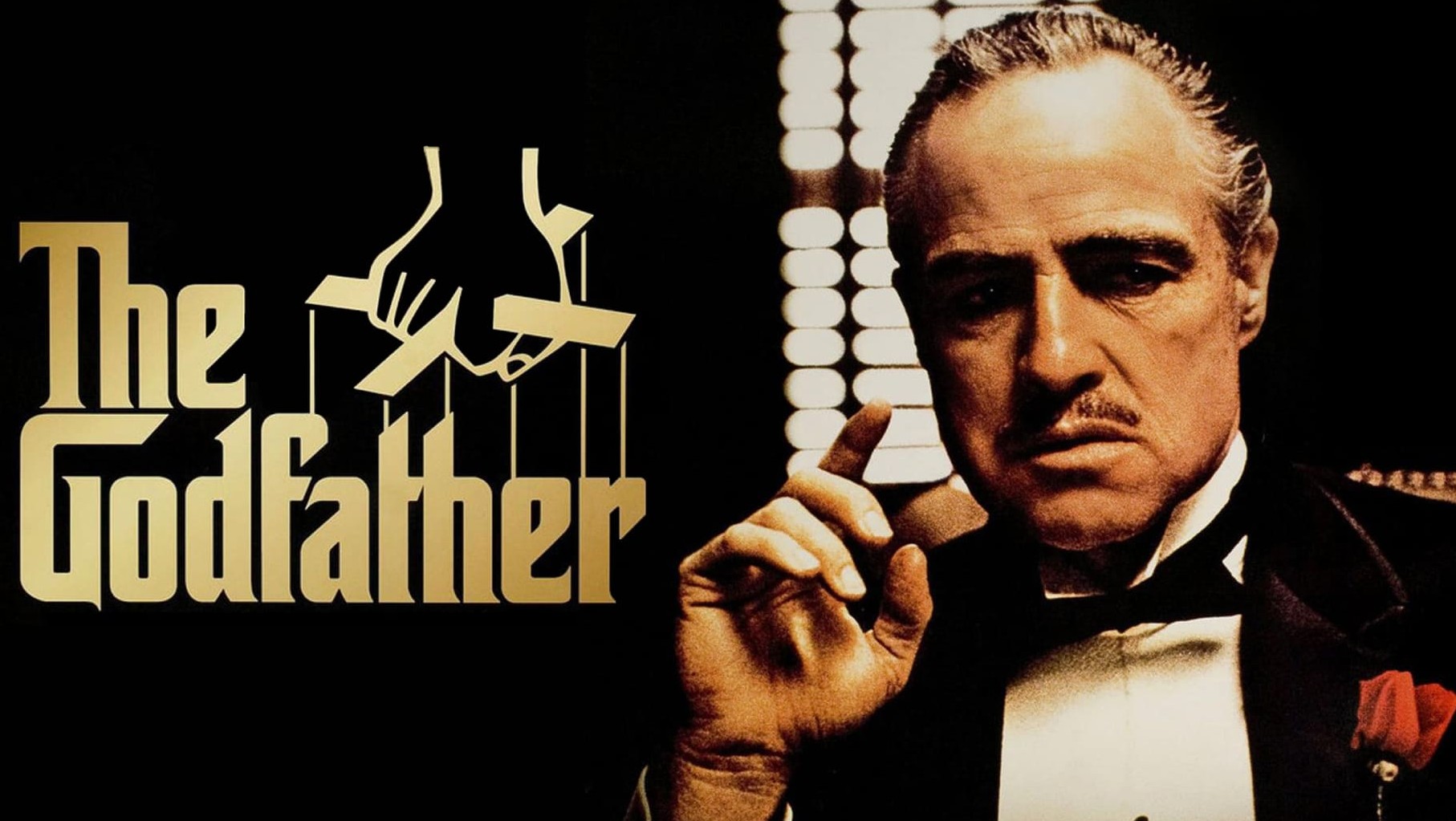The Godfather (1972)

“The Godfather,” released in 1972, is a landmark in cinematic history, directed by Francis Ford Coppola and based on the novel of the same name by Mario Puzo. This crime drama intricately weaves the tale of the Italian-American Corleone family, delving into themes of power, loyalty, and the dark underbelly of organized crime. With a stellar cast including Marlon Brando, Al Pacino, James Caan, and Diane Keaton, the film spans a decade, exploring the complex dynamics within the family and their dealings in the world of the mafia.
Set primarily between 1945 and 1955, “The Godfather” chronicles the rise of Michael Corleone (Al Pacino), the youngest son of Vito Corleone (Marlon Brando), the head of the Corleone crime family. The film opens with the wedding of Vito’s daughter, Connie (Talia Shire), serving as a backdrop to introduce the intricate web of relationships and power struggles within the mafia.
As the story unfolds, Vito is targeted by rival gangsters and a new era of organized crime. Following an assassination attempt, Michael is reluctantly drawn into the family’s criminal activities. Initially an outsider who aspires to a legitimate life, Michael’s character undergoes a profound transformation as he embraces his family’s legacy, ultimately taking over as the new godfather.
The film depicts the violent realities of mafia life, marked by betrayal, revenge, and the complexities of familial loyalty. Key events, including the iconic “Sicilian” revenge scene and the climactic baptism sequence, highlight Michael’s descent into the criminal underworld and his moral compromises.
At its core, “The Godfather” explores themes of power, loyalty, and the American Dream. The film presents a nuanced view of power dynamics within the mafia, showcasing how loyalty to family often conflicts with moral integrity. Vito Corleone’s mantra of maintaining respect and honor contrasts sharply with the violent actions taken to uphold the family’s name.
The concept of the American Dream is also critical to the narrative. While the Corleone family seeks wealth and influence, their methods raise questions about the ethical implications of achieving success. Michael’s transformation from an idealistic war hero to a ruthless mafia leader serves as a poignant commentary on how the pursuit of power can corrupt one’s values.

Coppola’s direction is masterful, employing a deliberate pace that allows the narrative to unfold organically. The cinematography by Gordon Willis, often referred to as the “Prince of Darkness,” utilizes shadow and light to create a visually striking atmosphere. The film’s iconic scenes, such as the opening wedding sequence and the haunting finale, are enhanced by the use of lighting and composition, contributing to the film’s ominous tone.
The soundtrack, composed by Nino Rota, adds an emotional layer to the film, with the haunting main theme becoming synonymous with the Corleone family’s legacy. The music enhances key moments, effectively amplifying the tension and drama.

The characters in “The Godfather” are richly developed, each representing different facets of power and morality. Vito Corleone is portrayed as both a loving father and a feared mob boss, embodying the duality of family loyalty and criminality. Marlon Brando’s performance is legendary, capturing the essence of a man who commands respect while navigating the treacherous world of organized crime.
Michael’s evolution is the film’s most compelling arc. Initially positioned as the family’s outsider, Michael’s journey toward embracing his heritage reveals the complexities of identity and loyalty. Al Pacino’s portrayal of Michael is both subtle and powerful, depicting a man grappling with his moral compass amid the demands of family legacy.

Upon its release, “The Godfather” received critical acclaim and commercial success, winning three Academy Awards, including Best Picture. It set a new standard for filmmaking in the crime genre and has since become a cultural touchstone. The film’s impact is evident in its numerous quotes, references, and parodies in popular culture.
“The Godfather” is often hailed as one of the greatest films of all time, influencing countless filmmakers and shaping the portrayal of organized crime in cinema. Its exploration of family, power, and morality continues to resonate with audiences, making it a timeless classic.

In conclusion, “The Godfather” is not just a film about organized crime; it is a profound exploration of human nature, loyalty, and the complexities of familial relationships. Through its rich storytelling, complex characters, and stunning visuals, it remains an enduring masterpiece that continues to captivate audiences and influence filmmakers around the world. Its legacy as a cornerstone of American cinema solidifies its place in film history, ensuring that its themes and characters will be discussed and appreciated for generations to come.
Suggested videos for you:
Suggested videos for you:
Suggested videos for you:











